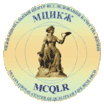T. I. Ionova1,2, E. V. Frolova3, K. V. Ovakimyan3, E. A. Mkhitaryan4, D. L. Logunov5, A. Yu. Oskova6, E. A.Vasileva6, Yu. V. Zhitkova7,8, A. A. Gasparyan7, K. V. Lunev9, E. A. Luneva10, D. A. Lipatova1, N. M. Porfirieva1, T. P. Nikitina1,2
1Â MULTINATIONAL CENTER FOR QUALITY OF LIFE RESEARCH, SAINT-PETERSBURG
2Â SAINT-PETERSBURG STATE UNIVERSITY HOSPITAL, ST. PETERSBURG
3Â MECHNIKOV NORTH-WESTERN STATE MEDICAL UNIVERSITY, SAINT-PETERSBURG
4Â PIROGOV RUSSIAN NATIONAL RESEARCH MEDICAL UNIVERSITY, MOSCOW
5Â CITY POLYCLINIC â„– 78, SAINT-PETERSBURG
6Â DOLGOPRUDNY CENTRAL CITY HOSPITAL, DOLGOPRUDNY
7 INTERREGIONAL CLINICAL-DIAGNOSTIC СENTER, KAZAN
8 KAZAN STATE MEDICAL UNIVERSITY, KAZAN
9Â ALTAI STATE MEDICAL UNIVERSITY, BARNAUL
10 LLC «PROFIMED», BARNAUL
Assessment of cognitive functions in geriatric patients and early diagnostics of cognitive impairment are of importance for primary health care specialists. The aim of the study was to evaluate the opinions of patients and informants regarding the acceptability of the use of MMSE, Mini-Kog and GPCOG for the screening assessment of cognitive impairment in elderly and senile patients at the primary health care, and to compare the different characteristics of these tests within survey of patients and informants. The survey of geriatric patients and their informants was conducted in 6 medical Centers on regular basis. Cognitive testing in patients was performed using three tests: MMSE, Mini-Kog and GPCOG. The analysis was carried out by descriptive statistics, data processing was performed using SPSS 23.0 statistical program package. The survey involved 180 patients (mean age — 74,1±7,7 years, 75 % women) and their informants (mean age — 52,8±15 years, 55 % women). Cognitive impairment was noted in 67,7 % of patients, among them 37,2 % patients had mild impairment, 21,7 % — moderate, 8,8 % — severe cognitive impairment. According to the Mini-Kog test, 26,8 % of patients with severe cognitive impairment were revealed According to the MMSE test, cognitive impairment was recognized in 30,4 % of patients, in 33,9 % of patients — subtle cognitive impairment. When using the GPCOG, cognitive impairment was identified in 44,4 % of patients. Most patients and their informants expressed positive attitude towards testing memory and attention in older patients with special tests. No significant differences between tests by the results of the comparative analysis of patients’ responses regarding aspects of the use of tests such as clarity, simplicity of tasks, convenience of the wording of tasks, and suitability of the test were revealed. The participation of informants in cognitive testing of geriatric patients provided by the GPCOG increases the accuracy of testing and represents a promising approach. The findings may be used in further studies focused on improving approaches for early detection of cognitive impairment in older patients by primary health care specialists.





